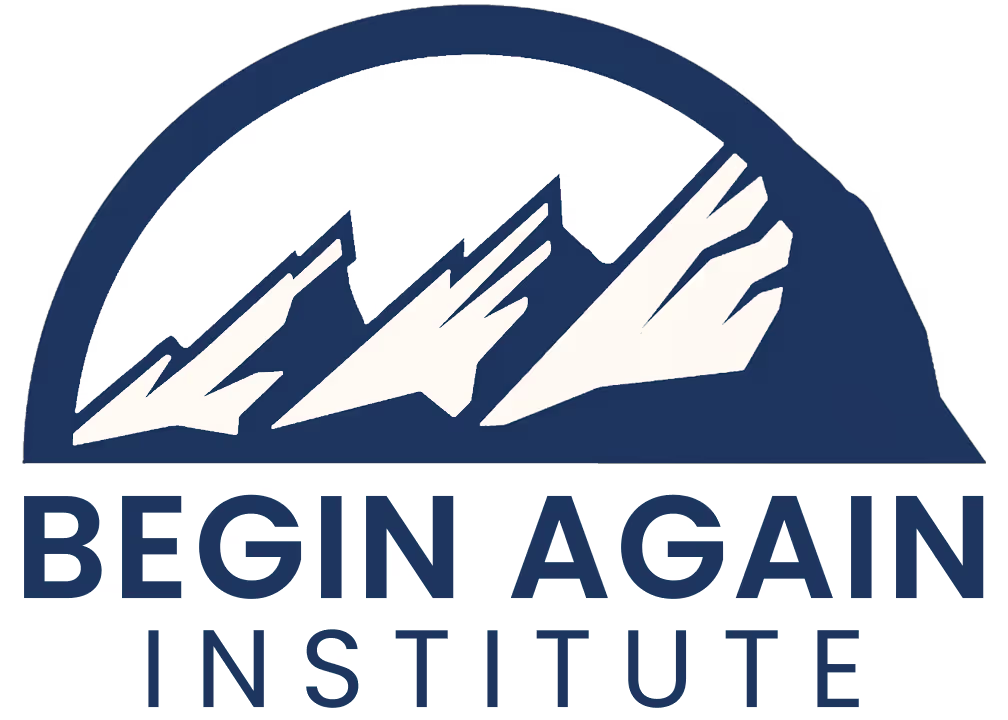The Importance of Spirituality in Recovery


For Christians, spirituality is how a person lives their faith. It is how a person reflects their understanding of God’s love in the world through prayer and action. Including spirituality in recovery is crucial for people of faith.
This may be especially true for people recovering from intimacy disorders. Sex and pornography addictions can lead people to behave in ways that are contradictory to their spiritual beliefs. Reclaiming their place on the path of God’s love is part of the healing process.
Begin Again Institute offers programs for men seeking treatment for intimacy disorders, including a 14-Day Christian Men’s Intensive to help men heal from intimacy disorders, like sex or pornography addictions, while restoring their faith.
The Role of Spirituality in Recovery
The spiritual aspect of recovery can be extremely transformative. However, men — including Christians — often come to treatment feeling disconnected from religion. They may believe they no longer deserve the love of a spiritual community.
Most programs leave the definition of God and spirituality up to each person to define. However, even in those programs, acknowledgment of a higher power is vital. Participants are urged to pray, meditate, and relate to their higher power in their own way.
Spiritual practice becomes an important part of the recovery practice. Including spirituality in recovery can help in many ways.
Healing
Accepting personal responsibility for your past actions can cause Christians a lot of shame. In fact, the fear of confronting that shame is one reason many people avoid treatment. However, embracing spirituality in your recovery process can help.
Spiritual healing includes forgiveness. Forgiving yourself and accepting God’s forgiveness can help you pave a new path.
“If we confess our sins, he is faithful and just and will forgive us our sins and purify us from all unrighteousness” (1 John 1:9, NIV).
Purpose
It may sound strange, but it is not unusual for addictive behaviors to become a person’s purpose. Giving up those behaviors may lead to a sense that life no longer has meaning. Sometimes, addiction causes people to fall away from activities that once provided meaning.
A spiritually focused life can help you feel useful and valued again. A better sense of purpose then leads to more confidence and better self-esteem.
Gratitude
Spiritual practices often focus on the importance of gratitude. Being grateful for the beauty of God’s creations and for life itself can help you stay more positive.
As Paul reminds the faithful in Ephesus: “Sing and make music from your heart to the Lord, always giving thanks to God the Father for everything, in the name of our Lord Jesus Christ” (Ephesians 5:19b-20, NIV).
Gratitude is a reminder of how fortunate you are to have a second (or third or fourth) chance. Living in gratitude helps you stay out of negative thinking patterns. Such patterns often lead to unwanted behaviors.
Connection
Intimacy disorders and other addictions can leave you feeling isolated from others. Reclaiming your faith can play a major role in reconnecting with the people you care about.
It may lead to joining a new Bible study or finding a way to connect with others who share similar struggles. Either way, regaining your faith and fellowshipping with others is a way to ease the disconnection caused by addiction.
“But if we walk in the light, as he is in the light, we have fellowship with one another” (1 John 1:7, NIV).
Strength
In the early stages of recovery, many aspects of your life must change. Although positive, change itself is mentally and physically exhausting. Spiritual strength can be the factor that helps you stay on course. Even though it can evoke deep emotions, spiritual practices like meditation and prayer can uplift you.
Devoting time to a spiritual practice may give you the strength you need to reach the next step of recovery.
Accountability
Strengthening your connection to a higher power helps firm up your sense of accountability. When you make yourself accountable, you no longer make empty promises. Including spirituality in recovery will help you stay honest with yourself, your recovery team, and the people you love.
“Carry each other’s burdens, and in this way you will fulfill the law of Christ” (Galatians 6:2, NIV).
Mindfulness
Mindfulness is the practice of being present in the moment. When you are mindful, you do not feel guilty about past mistakes or worry about future ones. A spiritual practice that includes mindful meditation, prayer, journaling, and moments of deep personal reflection will improve your ability to stay present.
Incorporating Spirituality Into the Recovery Process
Maybe you have left the religion of your childhood behind. Or perhaps you have never had a strong faith tradition. Or maybe you’re a Christian who feels that you have fallen away from your faith because of addiction. No matter your situation, you can still embrace the idea of spirituality in recovery.
There is no single perfect way to practice your faith while healing from addiction. However, these suggestions can help you explore new ways to reconnect with spirituality in a way that is genuine to your belief system.
Prayer
The practice of prayer is beyond the limitations of religion. Prayer is an opportunity to have a conversation with God, Jesus, or your concept of a higher power. As the old hymn says, “What a privilege to carry everything to God in prayer.” You may choose to use daily devotionals or prayer apps to develop a prayer practice.
Fellowship/Group Sessions
Fellowship recovery meetings are one effective way to bring your spirituality into recovery. Connecting with other spiritual people through Bible study is another. Many recovery groups emphasize spiritual and specifically Christian practices.
Nature and Experiences
It’s challenging to feel disconnected from God when you witness an amazing sunset or hike a gorgeous mountain trail. Getting out into nature may help strengthen your spiritual connection.
Mindfulness and Meditation
Mindfulness practices can clear your mind from negative thinking. They also help you focus on what’s important. These practices may include meditation, journaling, and deep reflection.
Expression of Gratitude
Expressing gratitude helps people feel more positive. This practice includes focusing on gratitude instead of religion. It is a great way for those who have detached from their faith to enjoy the benefits of a spiritual practice.
Finding Support in Spirituality
The stigma around addiction is decreasing. However, it can still be difficult to address sex addiction within the context of a church. You may experience guilt and shame or fear the judgment of others. It can leave you feeling abandoned and alone at a time when you need fellowship more than ever.
Entering a recovery program that prioritizes spiritual life is a life-changing decision. It can help to receive nonjudgmental social support from others who can relate to your situation.
Recovery provides the opportunity to make meaningful connections. It is not unusual for recovery clients to form strong bonds that last long after the program ends.
Nate Geyer, Primary Therapist at Begin Again Institute, said men with intimacy disorders often feel lonely, isolated, and insecure. They have a difficult time relating to others and establishing connections, he said.
“Support relationships are critical,” he said. “Community provides a space for voices to be heard and experiences to be validated. It can be a space that nurtures, heals, and empowers.”
Overcoming Challenges in Spiritual Recovery
Sex addiction shakes Christian faith. You may feel alone and abandoned or as if you are the one who has abandoned your own principles. These feelings can lead to more unwanted behavior. Once you commit to recovery, there are many challenges to overcome. One of the biggest is reconciling your faith with your past behavior.
It’s crucial to remember that no one is perfect. “For all have sinned and fall short of the glory of God” (Romans 3:23, ESV). It is possible to be both a sex addict and a Christian. Making mistakes does not mean you are no longer a person who is worthy of God’s love. It also doesn't mean you don't deserve the love of your spiritual brothers and sisters.
Spiritually-based recovery lets you examine your self-limiting beliefs. Recovery also helps you embrace new goals grounded in the teachings of your faith.
Heal With Begin Again Institute
Including spirituality in recovery offers many benefits. It can help you stay accountable and build new connections. Spirituality will also give you the strength to continue in your healing journey.
BAI’s 14-day Boulder Recovery Christian Intensive offers treatment for men with pornography or sex addiction and other intimacy disorders.
The program was designed to help men within the context of their Christian faith. During this transformative intensive, you can expect a trauma-informed approach to healing. Our Boulder Recovery program is a small-group experience. Programs include room and board, on-site staff, all meals and snacks, and more. You will take part in both group and individual therapies to support core healing.
At BAI, we also understand the devastating effects intimacy disorders can have on a partner. That’s why we offer a free Partner Support Program. This virtual program helps your wife heal from the betrayal she has felt in your relationship.
If you’re ready to heal the root cause of your unwanted behaviors, stop those behaviors, and heal relationships, call Begin Again Institute today.
Test Intensive Date
We get right to work, so you can get back to life.
“Begin again helped me jumpstart my healing. It’s like
a years worth of therapy in one trip.”


.avif)